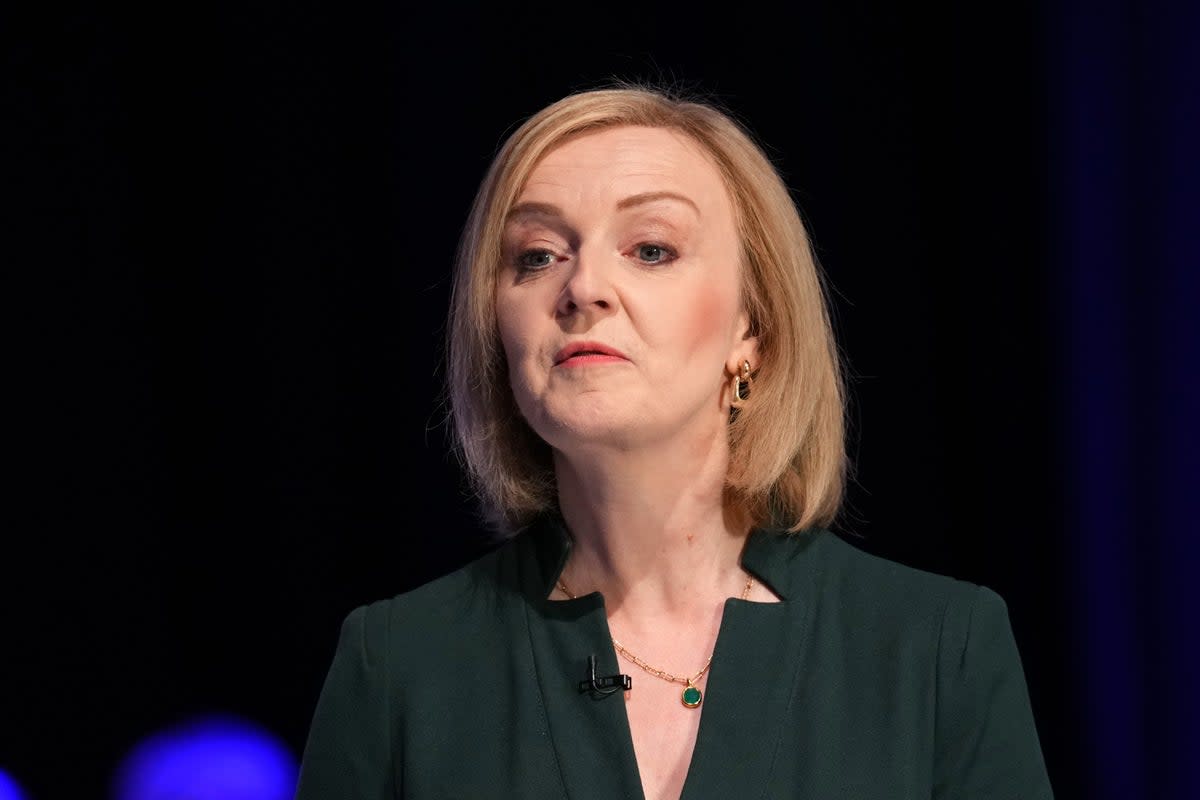Voices: Liz Truss is blind to the scale of the crisis we’re facing – and voters won’t buy it

- Oops!Something went wrong.Please try again later.
- Oops!Something went wrong.Please try again later.
There is a profound disconnect between the person most likely to become our next prime minister and the general public. It is almost like – dare I say it? – Liz Truss is out of touch.
It is almost like Truss doesn’t really understand what it’s like to be facing the hideous reality of the cost of living crisis in everyday lives.
It is almost like she doesn’t really get that normal people in their millions – many of whom voted for Brexit in 2016 and Boris Johnson in 2019 – are staring down the barrel of a personal crisis on a scale not seen for generations.
The response of Truss to the reality of unpaid bills piling up around the country has been, well, pathetic.
Let’s set out the situation in simple terms, with the aid of some new polling carried out by Public First (where I work). The survey’s results make for horrifying reading. Some shocking highlights:
• 26 per cent of people now have nothing – or less than nothing – left at the end of each month (35 per cent of working class voters)
• 29 per cent have savings that would last less than a month if the main earner lost their job (40 per cent or working class voters)
• 18 per cent say they’ve not been able to pay for clothes
• 28 per cent are worried they won’t be able to afford a nice Christmas
These last two bear repeating: people are worried about being able to put clothes on their back – and that Christmas might be unaffordable. Put simply, this is a crisis that is Victorian in scale and Dickensian in its impact.
And yet Truss’s team appears to be tone deaf to it. Only on Tuesday she was quoted as saying “we must not become fixated on sticky plaster solutions” to the problem. This is crazy language. This is the patronising language of someone who doesn’t seem to understand that working class people are on the verge of being forced into a mass boycott of bill-paying.
She appears to be treating the problem like a hypothetical economic challenge, that if only people can wait for her (bonkers) taxation reforms to kick in, then everything will be ok.
Worst of all, Truss seems to be arguing that there’s not much the government can do about people’s woes just now – that they will have to sit on their hands.
To keep up to speed with all the latest opinions and comment, sign up to our free weekly Voices Dispatches newsletter by clicking here
Voters won’t buy it. Voters now know – thanks to Covid – that the government can act fast and spend billions on a national problem that has the potential to damage their everyday lives. If ministers and civil servants could develop furlough almost overnight in 2020, then surely they could do something on the same scale now.
Again, the polling supports this hypothesis. Another survey last month found that 43 per cent of people think the government isn’t taking the cost of living crisis seriously (29 per cent of 2019 Tory voters agree).
Most damagingly, some 55 per cent think that it could do more to help with rising costs but is choosing not to do so (44 per cent of 2019 Tory voters agree).
Being cynical, this could represent a huge opportunity for Sir Keir Starmer and Labour. If Starmer can present himself as the man with a plan that can alleviate the widespread pain being felt, then voters will listen. They will listen even more closely if he appears to actually understand what it means to be worrying about being able afford a proper Christmas in 2022.
Put like that, it doesn’t seem that complicated. Starmer’s proposals to spend big, with hard interventions in the market, as set out on Monday, suggests that he does get it. But the speech revealing these plans was rather too late. It would have had a great deal more impact with voters in July, or even June, rather than August.
As well as having a bold proposal – as well as being seen to empathise – Starmer needs to be seen to move fast. Leadership in times of crisis demands urgency. That is, undoubtedly, what people will want from their leaders at this time of national trauma.
Truss seemingly can’t deliver it. Can Starmer?

